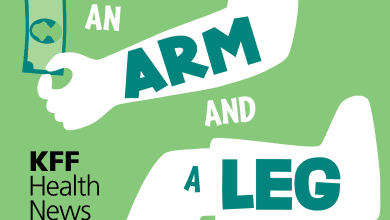Too Big To Fail? Now It’s ‘Too Big To Hack’ – KFF Health News
The Host
Mary Agnes Carey
KFF Health News
Lawmakers in Washington this week held the first congressional hearing on the Change Healthcare cyberattack, a breach that sent shock waves through the health care system as payments for care ground to a halt and left some providers in financial trouble. Republicans and Democrats alike zeroed in on how big health care conglomerations — like Change’s parent company, UnitedHealth Group — are leaving patients vulnerable.
And nearly 1 in 4 adults who lost Medicaid coverage in the past year are now uninsured, according to a new KFF survey probing the effects of what’s known as the “unwinding” of enrollments in the government insurance program for low-income people since pandemic-era protections expired.
This week’s panelists are Mary Agnes Carey of KFF Health News, Jessie Hellmann of CQ Roll Call, Sarah Karlin-Smith of the Pink Sheet, and Lauren Weber of The Washington Post.
Panelists
Jessie Hellmann
CQ Roll Call
Sarah Karlin-Smith
Pink Sheet
Lauren Weber
The Washington Post
Among the takeaways from this week’s episode:
- Though the Change Healthcare hearing on Capitol Hill illuminated bipartisan agreement on the perils of vertical integration in health care, lawmakers did not agree on possible solutions. Addressing consolidation, however, could remedy issues in health care beyond cybersecurity.
- The KFF survey on the unwinding found that nearly half of those who lost coverage signed back up for Medicaid weeks or months later, a signal that those enrollees should never have been dropped in the first place. Even a temporary loss in health coverage can have serious, lingering consequences.
- Republicans in Arizona are grappling with the fallout from the state’s newly reinstated, Civil War-era abortion law — echoing recent problems for Alabama Republicans after a state Supreme Court ruling upended access to in vitro fertilization there. Softened stances from conservative hard-liners like Senate candidate Kari Lake point to the potential negative consequences for the party in a critical election year.
- And the Centers for Disease Control and Prevention released new information about the current measles outbreak, revealing that many of those sickened are children, as well as adults who are unvaccinated or whose vaccination status is unknown.
Also this week, Julie Rovner, KFF Health News’ chief Washington correspondent, interviews Caroline Pearson of the Peterson Health Technology Institute.
Plus, for “extra credit,” the panelists suggest health policy stories they read this week that they think you should read, too:
Mary Agnes Carey: KFF Health News’ “When Rogue Brokers Switch People’s ACA Policies, Tax Surprises Can Follow,” by Julie Appleby.
Jessie Hellmann: Tampa Bay Times’ “Vulnerable Florida Patients Scramble After Abrupt Medicaid Termination,” by Teghan Simonton.
Sarah Karlin-Smith: Stat’s “Grocers Are Pushing Legislation They Claim Would Enhance Food Safety. Advocates Say It Would Gut FDA Rules,” by Nicholas Florko.
Lauren Weber: The New York Times’ “Chinese Company Under Congressional Scrutiny Makes Key U.S. Drugs,” by Christina Jewett.
Also mentioned on this week’s podcast:
- KFF Health News’ “Nearly 1 in 4 Adults Dumped From Medicaid Are Now Uninsured, Survey Finds,” by Phil Galewitz.
- The New York Times’ “Under Pressure From Trump, Arizona Republicans Weigh Response to 1864 Abortion Ban,” by Chris Cameron.
Credits
Francis Ying
Audio producer
Emmarie Huetteman
Editor
To hear all our podcasts, click here.
And subscribe to KFF Health News’ “What the Health?” on Spotify, Apple Podcasts, Pocket Casts, or wherever you listen to podcasts.
KFF Health News is a national newsroom that produces in-depth journalism about health issues and is one of the core operating programs at KFF—an independent source of health policy research, polling, and journalism. Learn more about KFF.
USE OUR CONTENT
This story can be republished for free (details).



